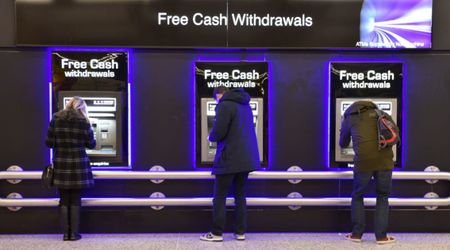Here's How to Protect Your Digital Investments From NFT Swap Order Scams

Amidst the burgeoning landscape of digital assets, a clandestine threat looms—NFT swap order scams. These scams unravel a world of deceit where unsuspecting victims trade their prized digital treasures for worthless counterfeits. Custom trades, epitomizing flexibility in the NFT realm, serve as the breeding ground for cunning con artists exploiting the burgeoning hype surrounding NFTs. In this expose, we unveil the intricate mechanics of NFT swap order scams, shedding light on the deceptive tactics employed by fraudsters. Delving deeper, we dissect the anatomy of NFT swap orders, elucidating their pivotal role in facilitating the exchange of ownership rights within the evolving NFT market.

Understanding NFT swap orders
An NFT swap order is a transaction where parties exchange nonfungible tokens (NFTs). Unlike cryptocurrencies like Bitcoin (BTC) or Ether (ETH), which are interchangeable, each NFT has unique qualities, verified using blockchain technology. NFTs represent digital content such as virtual real estate, music, films, and artwork. These swaps facilitate the exchange of ownership rights between individuals or entities. Parties transfer ownership of one NFT to another in return for another NFT, a mix of NFTs, cryptocurrencies, or other assets. Exchanges occur between parties or via decentralized exchanges (DEXs) and specialized platforms. Swap orders adhere to predefined parameters agreed upon by the parties, facilitating the transfer of digital assets and collectibles among investors, artists, and collectors in the evolving NFT market.
Today @andr3w supported a charity project rug by @hopeexist1 someone supposedly battling cancer causing the project to mint out.
— ZachXBT (@zachxbt) May 31, 2023
“I’ll put my rep on the line to say this is for real amidst all the scams in our space”
It turns out she stole the art and deactivated her account. pic.twitter.com/q4HivGBLMY
NFT swap vs. phishing scams
Distinguishing between NFT swap order scams and NFT phishing scams is crucial in protecting digital assets. NFT swap order scams involve fraudulent swap offers on marketplaces, where victims unwittingly trade valuable NFTs for worthless ones. Conversely, NFT phishing scams employ fake websites or messages to extract wallet login credentials, enabling the theft of all assets within the compromised wallet. While swap order scams deceive users with misleading trade details, phishing scams trick individuals into divulging sensitive information through deceptive websites or URLs. Understanding these distinctions is paramount to safeguarding against different forms of NFT-related fraud.

Deceptive tactics in NFT swap orders
Sophisticated fraudulent schemes prey on NFT traders through swap orders, utilizing fake tokens resembling high-value assets. Scammers list these counterfeit NFTs on credible platforms, often manipulating information to enhance their authenticity. When a buyer shows interest, they swiftly execute the swap, substituting the genuine NFT with the fake one in the buyer's wallet. Due to their striking similarity, buyers remain unaware of the deception until they attempt to resell or verify the NFT. By then, the fraudster may have vanished, leaving victims unable to seek recourse. To mitigate such risks, traders must thoroughly vet sellers and verify token legitimacy, relying on reputable markets with stringent verification protocols.
@moonbirds @veefriends - SCAM REPORT:
— lilufive.eth (@ImagineBananas) September 13, 2023
I have received two separate emails similar to the images below claiming to be from your projects reaching out for free AirDrops and an NFT card. DO NOT CLICK ON LINKS WITHOUT DYOR!!
I haven’t been online for a long time, so if there’s more… pic.twitter.com/3pqBrv03fn
Identifying NFT swap order scams: Red flags to watch out for
When engaging in NFT transactions, it's essential to remain vigilant for potential scams. One common red flag is the presentation of unrealistically low prices for valuable NFTs. Deals that appear too good to be true often signal potential scams, prompting the need for careful consideration before proceeding. Additionally, sellers who rush transactions, pressuring buyers to finalize deals hastily without allowing for proper due diligence, should raise concerns. Furthermore, suspicious artwork or metadata resembling official collections may indicate counterfeit NFTs, necessitating thorough scrutiny to verify authenticity. Lastly, buyers should exercise caution when dealing with sellers with a limited or questionable transaction history on the marketplace, as well as those who are reluctant to provide additional documentation or ownership confirmation upon request. These warning signs can help individuals avoid falling victim to NFT swap order scams and protect their investments in the digital asset market.
























